[Fonte: GLP] What links belching cows and climate change with the modern genetic revolution and a ridiculously long nerve?
The first two are pretty straightforward: Cows emit methane in their burps (both front and rear), and this greenhouse gas is one of the most damaging contributors to the global warming alarm that’s currently gripping the headlines. Indeed, food production as a whole generates perhaps 25 percent of all greenhouse gas emissions, with the methane-emitting meat and dairy industries adding perhaps a third or more to agriculture’s total figure.
This is where modern genetics comes in. Given the growing concern about climate change, modern genetic technology is now being applied to address some of its causes, including the gaseous nature of cows (and other domesticated ruminants, such as sheep). And it is the complexity and ingenuity of these techniques that, in turn, provide the connection to the overly-long nerve mentioned above.
Before touching on this nerve, however, what do we know about cows’ (and sheep’s) unfortunate tendency to belch climate-changing methane? Actually, it isn’t so much the animals themselves that create this unwanted greenhouse gas — rather, it’s the fault of certain microorganisms that reside in their rumen, the section of digestive tract that gives ‘ruminants’ their name. Here, methane is simply an unfortunate byproduct of the enteric fermentation by which these gut microbes break down plant matter — and the host animals’ burps are merely a means to relieve the build-up of gas.
Preventing this methane from being produced in the first place therefore seems a sensible way to limit its damaging effects — and geneticists are already addressing this in at least three different ways: by playing with the genes of the gut microbes themselves, the grasses they ferment and the ruminants within which they live.
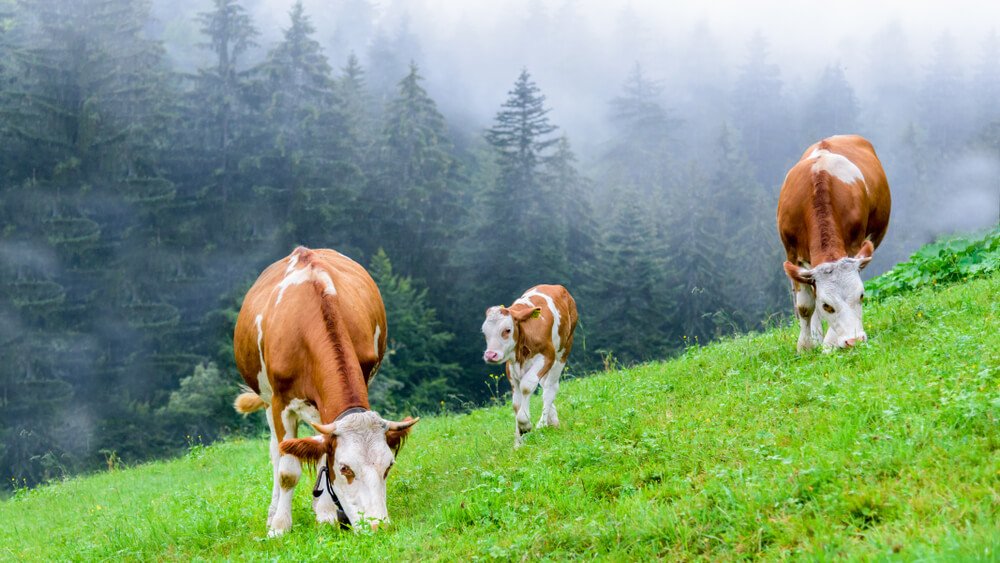
The last of these, using genetic know-how to create non-methane emitting cows and sheep, merely puts a more modern twist on the artificial selection of livestock that has been practiced for centuries. Of course, the big difference between traditional selective breeding and today’s genetically informed alternative is precision; whereas in the past, farmers could only work with directly observable characteristics (size or weight, say, or behaviour), modern breeders can now target the actual genes that determine particular traits.
In the case of methane-producing cattle, we now know that genetic differences between individual animals influence the considerable variation in these individuals’ output of the gas. Given this, farmers can simply select low-emitting cattle for breeding at the expense of their high-emitting bovine brethren (or ‘sistren’ in the case of cows).
The obvious disadvantage here is time — it has taken years to build up the milk- or meat-production capabilities of modern cattle. Again, though, modern genomics has the potential to quickly revolutionize the age-old techniques of selective breeding, especially by ‘cutting and pasting’ desired genes into existing cattle lineages. Genetically engineered hornless cattle have already be created, so making them methane-less, too, could be next on the list.
Of course, a simpler idea might be to simply change the animals’ diets. Maize-based silage, for example, appears to cause less methane production than grass-based silage, with legumes and linseed or soya oil (and even seaweed) also reducing the amount of greenhouse gases that animals emit.
And while such dietary changes could be affected without attention being paid to genes, modern genetic technology can play a role here too — say, by genetically engineering methane-inhibiting properties into grasses already selected for their desired nutritional traits. This approach is already being taken, for example, to create rye grasses with a suite of beneficial characteristics that improve yields, enhance drought-resistance and inhibit methane production.
What, though, of the guilty gut microorganisms themselves? Here again, targeting the host animals’ diet could provide a straightforward means to minimize these microorganisms’ methane production — say, by the addition of appropriate methane inhibitors to cattle feed. This method, which is not directly reliant on genetics, could also channel the energy normally lost in methane-producing fermentation to the host animal itself; nevertheless, a longer term solution might be just to remove the particular microbes that are the root cause of the problem.
One scheme being examined here is to genetically screen ruminants’ gut contents to identify the main ‘methanogens’ and hence develop vaccines to target the methane-producing microorganisms. (Appropriately enough, the word ‘vaccine’ itself comes from vacca, the Latin for ‘cow’, with the very first vaccinations made of matter from cowpox blisters as a defense against smallpox.) Genetic identification of the culpable methanogenes (all bacteria-like arcachea) is similarly being used in other anti-methanogenic solutions to the problem of greenhouse gas emissions in cattle.
Now, though, having briefly surveyed these various ingenious approaches to tackling climate change, it is time to leave the specifics of genetics and expand the discussion to encompass wider evolutionary theory. Broad Darwinian ideas, it turns out, can cast a critical light on the seemingly intelligent designs discussed thus far — as can be illustrated by the massively long nerve with which this article began.
The nerve in question is the recurrent laryngeal nerve that links the base of the brain to the larynx (or ‘voicebox’). Although these two organs are mere inches apart, the recurrent laryngeal nerve follows an absurdly convoluted pathway between them, traveling down the neck from the brain, looping around the arteries of the heart, then returning all the way back up to the larynx. (In giraffes, it can reach 15ft/4.6m in length.)
This nerve is often presented as a challenge to anti-evolutionary theories of Intelligent Design; that nothing intelligent would create such a preposterous detour. Rather, the recurrent laryngeal nerve is a classic example of the ‘unintelligent’ processes of natural selection, blindly building on what already exists. (Here, the nerve first arose in a fish-like ancestor as a direct link between the brain and the gills that merely bypassed the heart. The nerve pathway then incrementally lengthened as new species with new body shapes — including us and giraffes — emerged over evolutionary time.)
Yet while this is all well and good for debate against creationists, what on earth has it to do with methane-emitting cows and climate change?
The point is that human culture, institutions and behaviors are themselves mostly the product of the same blind tinkering that has produced the workable but absurd recurrent laryngeal nerve. The way our societies are organized, for example, owes more to ancestral social behavior than to rational planning (think primate alpha male and a dozen modern presidents and dictators will immediately spring to mind).
Or take human meat-eating as another example. Our forest-dwelling and largely vegetarian primate ancestors did not purposefully set out to become expert hunters as they moved into the savanna millions of years ago. Rather, natural selection progressively built on the limited hunting abilities already displayed by our nearest relative, the chimpanzee. Yet as more meat was caught and consumed, the extra calories allowed in turn the development of a larger, energy-hungry brain, which could then feedback into more intelligent hunting (and cooking techniques, such as the use of fire). Ultimately, this led to the large-brained, super-intelligent creatures us humans are today. (But this was neither inevitable nor directed — cats, for example, use the energy from eating meat to spend most of their lives asleep. Who are the smarter species, eh?)
But let’s cut to the chase. Our intelligence (and our meat-eating) now appears to have brought the Earth to the verge of catastrophic climate collapse. At the same time, however — as shown in the genetic examples above — human ingenuity may find a way to avoid this existential crisis.
But, at least in the case of meat-eating, surely a more obvious idea would be to give up the stuff entirely. So why don’t we?
Because we’re still working with what went before. The modern human economic system — including our agriculture — is built on processes and institutions that would collapse with sudden change. And as the horrors and absurdities of the Soviet Union graphically showed, we cannot simply overturn our established institutions any more than natural selection can simply start again from scratch.
And just as natural selection was stuck with the initial ‘design’ of the recurrent laryngeal nerve, so too our thinking seems stuck with the systems that already exist.
At the same time, however, natural selection has, however blindly, given us the capacity for foresight and to imagine alternatives beyond what we currently do.
Once such imagined alternative was the dystopia depicted in the movie Solent Green came out. Set in 2022 (fifty years from when it was produced in the early 1770s), the movie foretold the collapse of civilization due to global warming. Like the over-the-top alarmism of much modern climate change rhetoric, Solent Green’s predictions were clearly wrong — yet it’s lingering impact is over the food that its desperate human characters were forced to eat.
Now it really is almost 2022, and our abilities now extend to making meat in space. Yet most of us are still devouring the flesh of other creatures, much as our animal ancestors did for millions of years.
Perhaps it would be better if we simply stopped — after all, it might just save a planet.
Patrick Whittle has a PhD in philosophy and is a freelance writer with a particular interest in the social and political implications of modern biological science. Follow him on his website patrickmichaelwhittle.com or on Twitter @WhittlePM
The GLP featured this article to reflect the diversity of news, opinion and analysis. The viewpoint is the author’s own. The GLP’s goal is to stimulate constructive discourse on challenging science issues.






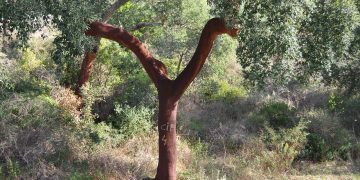
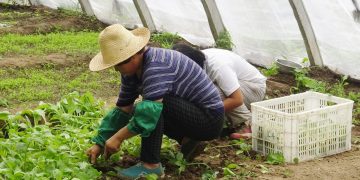
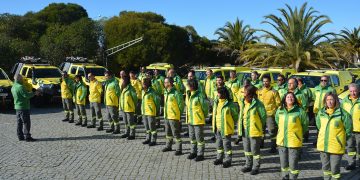












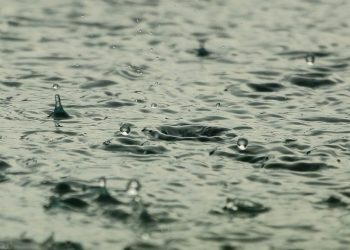
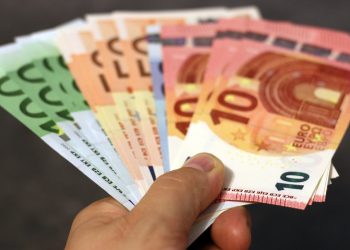
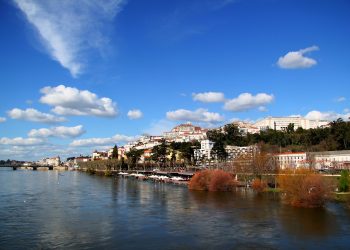
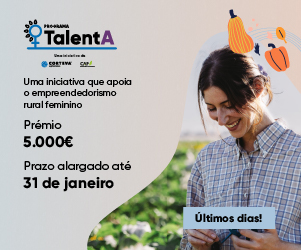

















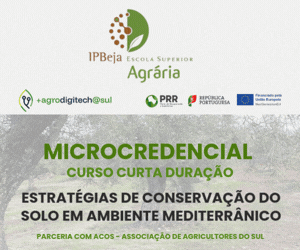










Discussão sobre este post